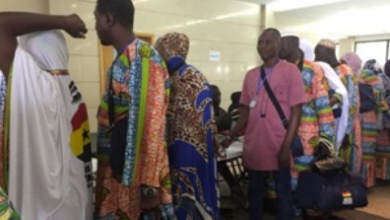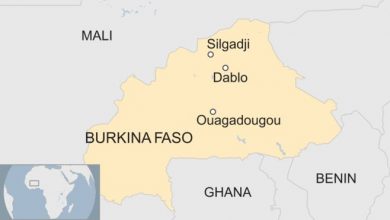News
Women hold only 25% of board seats on GSE-listed firms in Ghana – Report

Women are still highly underrepresented on the boards of major companies listed on the Ghana Stock Exchange.
This is according to the 2021 Board Diversity Index report released by TheBoardroom Africa in partnership with the Ghana Stock Exchange (GSE).
The report shows that although the number of women on boards has marginally increased by 3% since 2020, it is still woefully inadequate in achieving equal representation in the leadership of major corporate organizations.
Of the 35 companies assessed, women hold only 25% of board seats and 27% of non-executive director seats.
“The 2021 Board Diversity Index reveals that the most common role held by women across most companies remains the position of corporate secretary. While 75% of all corporate secretaries among GSE-listed companies are women, this position is not a director role. By virtue of their work and presence at board meetings, corporate secretaries can exert influence in the boardroom and can be great director candidates yet seldom hold a seat at the table,” the report indicated.
Among the agriculture and agribusiness, financial services, automobile, advertising and communications, education, energy, consumer goods, and food and beverage sectors that were in focus, it was revealed that only companies in the mining, publishing & printing, energy, consumer goods, financial services, foods and beverage, telecommunication sectors had some of their constituents with at least 30% of women on their boards.
Among these sectors, fast-moving consumer goods, mining, and telecommunications have the highest levels of female boardroom representation.
“In terms of the aggregate number of women, the financial services sector outperforms all sectors: 40% of all female directors in GSE- listed companies are represented in the financial services sector,” the report stressed.
Marcia Ashong, Founder and CEO of TheBoardroom Africa, said, “We recognise the progress made towards achieving greater female representation in the corporate governance sphere, but know that there is more than can be done to advance gender diversity in the boardroom. As such, we call upon companies to commit to advancing parity by signing the Board Diversity Charter and to the Government of Ghana to promote gender-conscious board appointments in companies where it holds a stake.”
“The Ghana Stock Exchange aims to champion inclusive growth and prosperity to power a stronger economy. We are inspired by the strides of our issuers in advancing gender diversity and pledge to work with all companies listed on the GSE to create stronger and more inclusive boards,” said Abena Amoah, Deputy Managing Director of Ghana Stock Exchange.
Other highlights from the report show that:
- Women hold 25% of the board seats and 27% of non-executive director seats of GSE-listed companies— an increase of 3% from 2020, respectively.
- Almost one-third (29%) percent of Ghana’s listed companies have boards featuring at least 30% female board directors, an increase of 2% from 2020. By international standards, 30% is considered the minimum threshold to reap the benefits of boardroom diversity.
- 5% of companies still have one or zero women on their boards. This metric has decreased by 3.5% from 2020.
- Only 6 out of the 13 sectors have companies with more than 30% representation.
- Women make up 15% of Chair, 12% of CEOs/MDs, 4% of CFOs, and 10% of COOs on Ghana’s listed boards. There has been an increase in the number of Chairs and CEOs/MDs by % & 4% respectively from 2020; however, there has been a decrease in the number of CFOs and COO by 9% & 5% respectively from 2020.
- Businesses with female chairs tend to have more women on their boards compared with businesses with male board chairs. 80% of companies with female chairs have 30% or more women on their board, an increase of 30% from 2020, while only 28% of companies with male chairs have 30% or more women on their board, a decrease of 1% from 2020.
- The Boardroom Africa (TBR Africa) is the largest regional network of female executives in Africa.
- The goal of TBR Africa is to improve access to board opportunities for women and accelerate the presence of women on boards by working with development finance institutions, private equity investors and companies and companies to accelerate the appointment of women on boards and build a growing pipeline of board-ready women while inspiring and educating the business community on the power of diverse leadership.
The Boardroom Africa (TBR Africa) is the largest regional network of female executives in Africa.
The goal of TBR Africa is to improve access to board opportunities for women and accelerate the presence of women on boards by working with development finance institutions, private equity investors and companies and companies to accelerate the appointment of women on boards and build a growing pipeline of board-ready women while inspiring and educating the business community on the power of diverse leadership.
Source: Fiilafmonline/CitiNews



